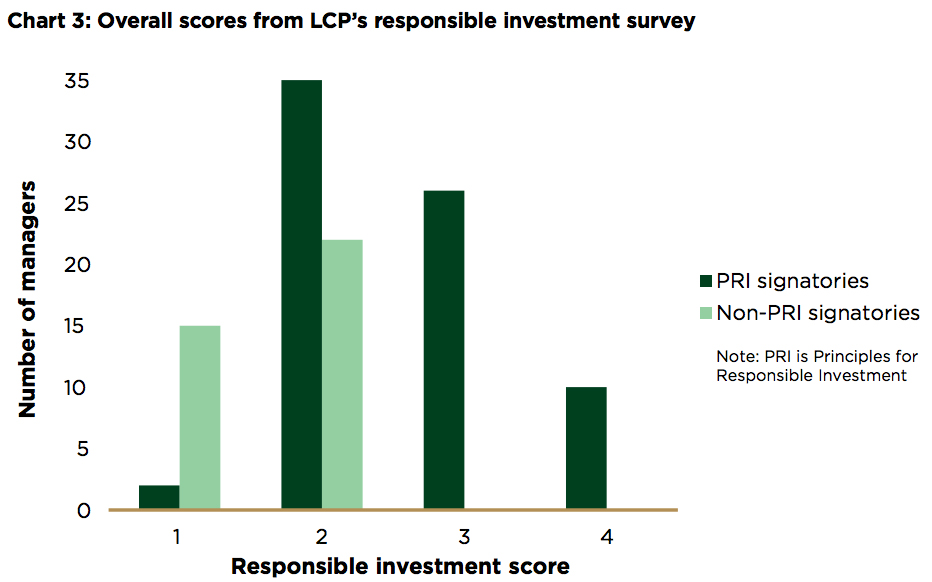Asset managers might talk the talk of “responsible investing,” but that doesn’t mean they walk the walk.
A recent survey by UK-based consultant Lane Clark & Peacock (LCP) found that even signatories of the United Nations-backed Principles for Responsible Investment (PRI) often failed to integrate environmental, social, and governance (ESG) considerations into their investment processes.
“Just because a manager signs up to the PRI doesn’t necessarily mean they take it seriously.”The survey, which scored over 100 managers based on the underlying levels of commitment and resources they have dedicated to ESG issues and active ownership practices, found that just under half of PRI signatories actually followed through on these promises.
“Just because a manager signs up to the PRI doesn’t necessarily mean they take responsible investment seriously,” said Mark Nicoll, a partner at LCP. “There remains room for the rhetoric to catch up with reality.”
Asset owners and trustees need to critically examine managers’ ESG credentials to determine which actually invest according to these promises, LCP said. These credentials can include integration of ESG in the investment process, shareholder voting and engagement, and fee transparency.
“It takes relatively little effort for an investment manager to give the appearance that they are concerned about responsible investment issues,” Nicoll said. “This can easily be done by producing glossy marketing material, by joining the relevant industry groups, or indeed by signing up to the Principles for Responsible Investment.”
But while not all PRI signatories scored well, the group as a whole still did better than managers who had not signed the PRI. Not one of the non-signatories earned a positive score from LCP. In total, 33% of managers received positive scores, while 49% of PRI signatories did.
“Many—though far from all—of those managers displaying a commitment to responsible investment are backing this up by integrating these considerations into their investment processes,” Nicoll said.
 Source: Lane Clark & Peacock’s “Investing Responsibly”
Source: Lane Clark & Peacock’s “Investing Responsibly”
Related: The Explosive Growth of ESG Managers & Consultants: A Barrier to ESG?
